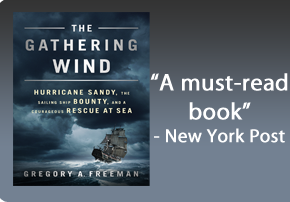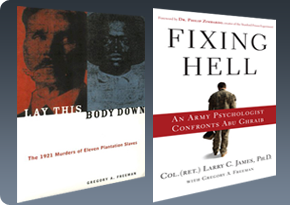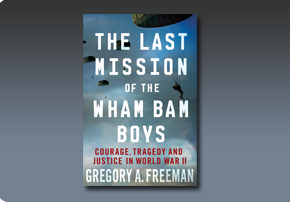
Lay This Body Down
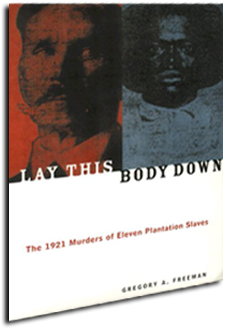 Lay This Body Down: The 1921 Murders of Eleven Plantation Slaves
By Gregory A. Freeman
Lay This Body Down: The 1921 Murders of Eleven Plantation Slaves
By Gregory A. Freeman
Lawrence Hill Books, 1999
Williams was not alone in using "peons," poor blacks bailed out of local jails, but his reaction to a federal investigation was almost unbelievable.
He decided to destroy the evidence, to kill 11 black men who could testify to the situation. Williams enlisted the aid of his farm boss, 27-year-old Clyde Manning, forcing him to methodically kill his friends. Men were chained together, two-by-two, weighted down with rocks, thrown over bridges, alive and terrified; others were bludgeoned with an axe, summarily shot, or ordered to dig their own graves.
The surprises continued in the aftermath, as even a bigoted rural community found that it could not overlook such a heinous crime. Two sensational trials ensued, gripping the state, galvanizing national attention, and marking a turning point in the treatment of black Americans.
Clyde Manning and his fellow peons can truly be said to be the last American slaves. This riveting book is based largely on the immensely detailed court testimony, the FBI investigations and other records.
A vivid, haunting story of a long forgotten incident, it helps to illuminate the long journey of African Americans from slavery to freedom.
From Chapter 1: Don't Throw Me Over
Back To TopJust as before, the car came to a halt in the middle of the bridge and Mr. Johnny stepped out. "All right, boys, get out," he said. "Hurry up and get it over with." Manning and Chisolm helped Price out of the back seat, with Manning lifting the heavy bag of rocks so that Price could walk. Mr. Johnny didn't say anything this time. Chisolm began to push Price toward the railing while Manning, with his eyes downcast and avoiding Price's face, supported the rocks.
Manning was surprised when Price shook himself free of Chisolm's grip and with a low, quavering voice, said "Don't throw me over. I'll get over." Apparently not knowing what else to do, Chisolm let Price shuffle slowly toward the railing on his own. Manning walked alongside, carrying the bag of rocks that Price could not support without his help. When he got to the railing, Price turned his back to the river and faced Mr. Johnny, standing near the car.
He pulled himself up on the railing and balanced himself there, with Manning still holding the bag of rocks for him. He sat there for a long moment, tears streaming down his dark cheeks and his whole body trembling. No one said anything. Manning stared downward, his gaze passing through the rusted metal bridge railing and into the deep blackness of the river. Price looked from Manning to Chisolm as if he were trying to think of something that would help him, but nothing came.
"Don't throw me over," he said once again, calmly. And, after another long pause, "Lord have mercy."
With those final words, Price leaned back and Manning let go of the rocks. Price disappeared into the darkness.
Horrific, shocking, painful, yet ultimately redemptive and even encouraging, Lay This Body Down is a vital addition to our knowledge of the American past.
Stanley Booth, author
The True Adventures of the Rolling Stones
I couldn't put down this magnificently well-written book. Greg Freeman has illuminated a little-known corner of the world in a forgotten period of history: the way the practices and assumptions of slavery lingered decades after Appomattox in a couple of rural Georgia counties. The author unflinchingly tells a brutal plantation story; in its wake, he discovers the stirrings of abhorrence and justice among the townsfolk; and he finds, between the act and the recoil, that the South moved forward a half-step toward decency and human acceptance.
Melissa Faye Greene, author
The Temple Bombing
Praying for Sheetrock
Lay This Body Down is a stunning retelling of one of the worst serial killings in Georgia history. It reveals the sordid story of slavery that existed far into the 20th Century in the South. Gregory A. Freeman's superb book is both poignant and disturbing because it points out the deep roots of racial hatred that have been a blight on the United States since its founding.
Phil Williams, author
Crossing Wildcat Ridge
Freeman's book has a subtitle calculated to bring readers up short. Plantation slaves in 1921?? Therein lies a horrifying tale of the Old South. A Georgia-based journalist, Freeman first came across this story when his hometown, Atlanta, was hosting the 1996 Olympics (although it was widely covered even in the northern press at the time of the events described in the book). Although slavery theoretically died with the Confederacy, in the Jim Crow South there were still forms of debt bondage, called peonage, that were little more than gussied-up versions of the "peculiar institution." A young black man would find himself arrested for some minor offense and issued a fine that he would be unable to pay; a local farmer would pay his fine and put him to work under slavery-like conditions, ostensibly to pay off this unasked-for loan. In the case of gentleman farmer John S. Williams, the result could be death by beating, bludgeoning, shooting, or drowning. Williams, unwillingly aided by his black overseer, Clyde Manning, murdered eleven of his plantation workers in 1921 when he thought the nascent Bureau of Investigation (later the FBI) was considering charges against him for peonage. Eventually, the story came to the surface with a trio of the corpses he and Manning had tossed into a nearby river. Remarkably, Williams was convicted of murder and sentenced to life imprisonment, primarily on Manning's testimony -- the first white southern male convicted of first degree murder of a black man or woman since 1877. (It would be 45 years before it would happen again.) Freeman walks the reader through the eleven murders and their aftermath with cool detachment. The book is scrupulously researched, with an eye for the telling detail. A good true-crime story, with far-reaching implications.
Kirkus Reviews
Newspaper Coverage of the Trials
Back To Top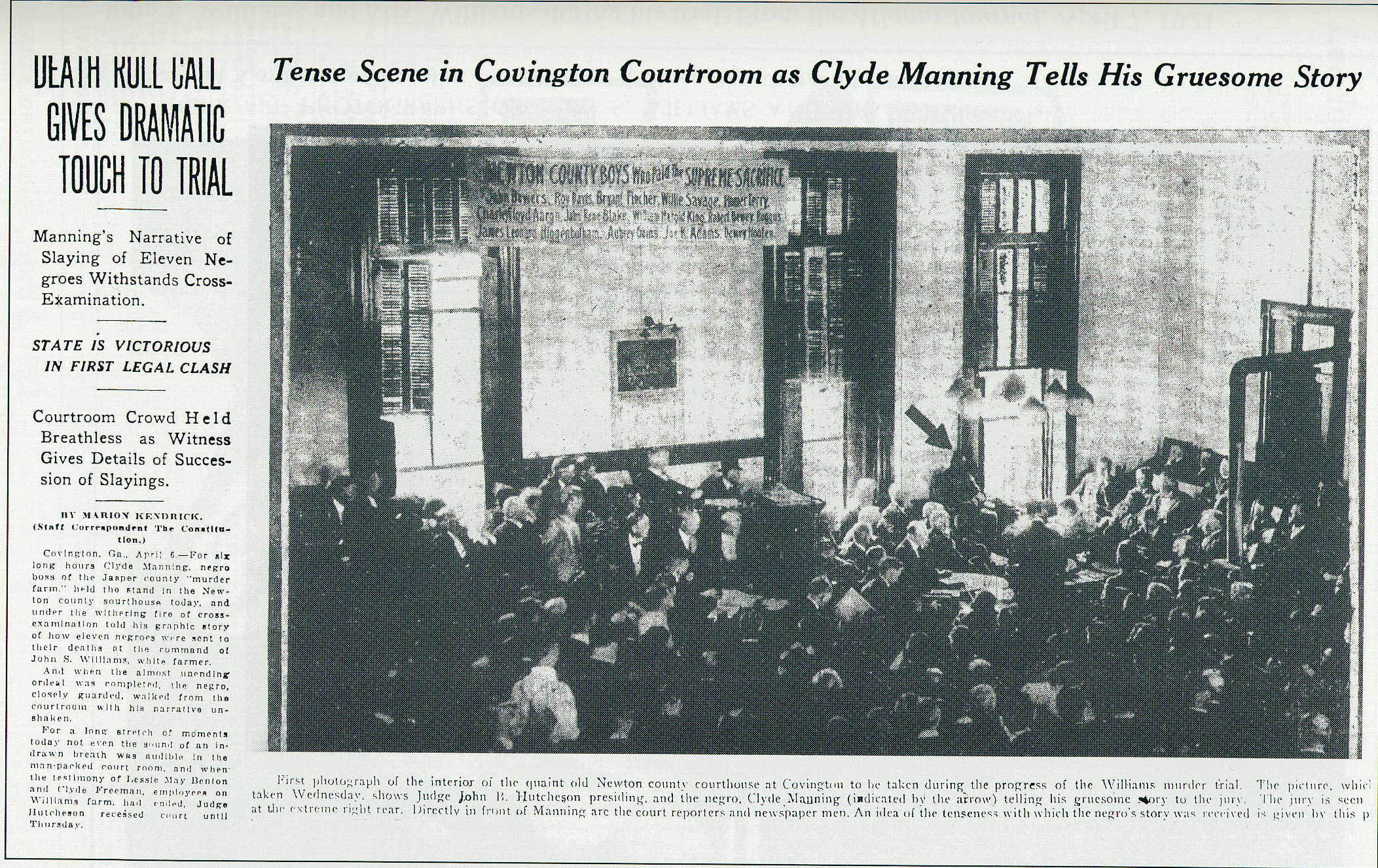
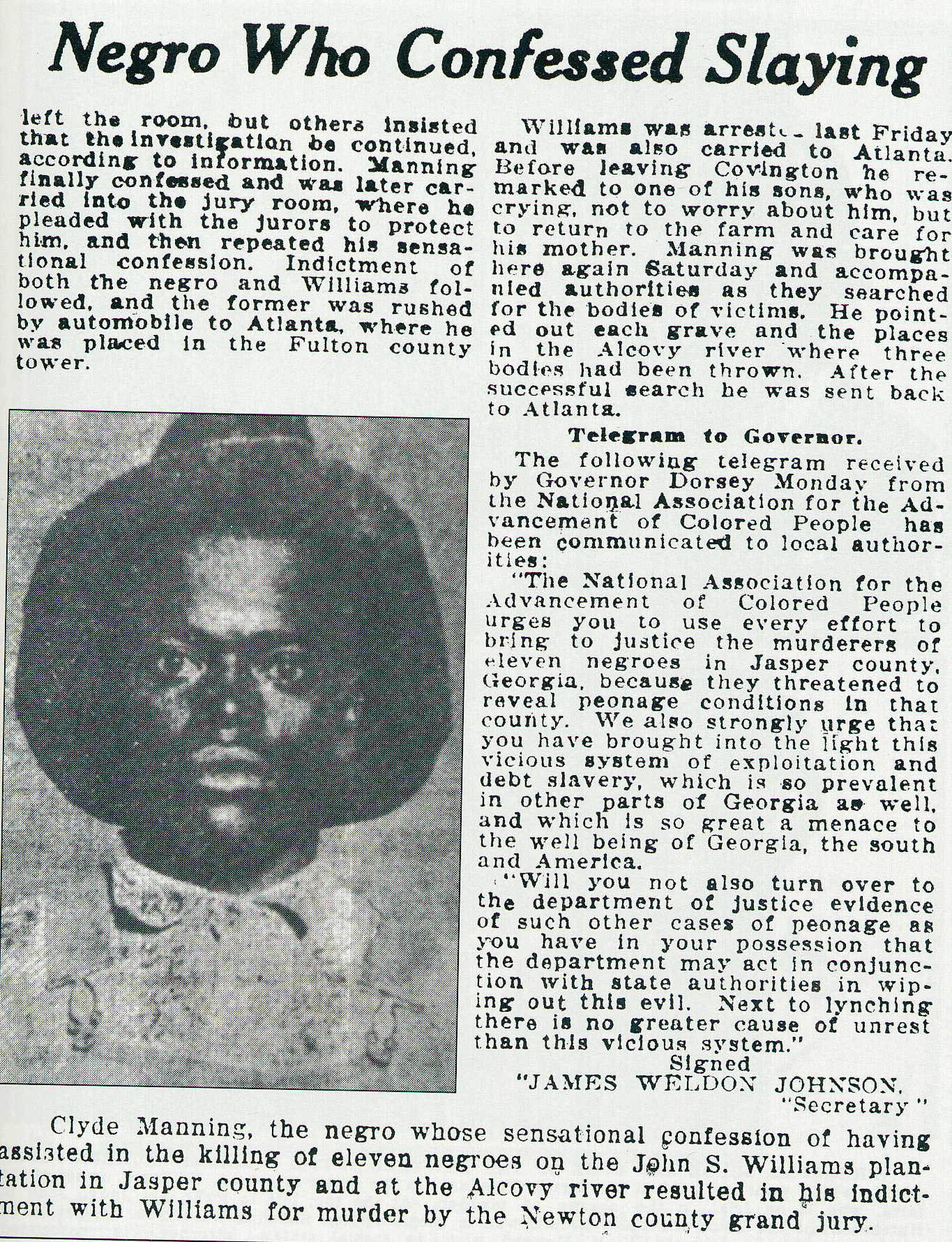
Latest News
Forgotten 500 list of rescued airmen has been updated!
The list of airmen rescued in Operation Halyard that was included in THE FORGOTTEN 500 was known to be incomplete, and many people have asked if their family members might have been rescued even though they weren’t on the list. Now we have an updated list, thanks to the great research by Wendy Irwin, a relative of one of the men rescued.
Using the Missing Air Crew Reports that were filed after a bomber went down, Wendy has added a number of crew members who most likely were sheltered by Draja Mihailovich and rescued in the Operation Halyard flights. We still can’t call the list complete, so your relative might have been part of Operation Halyard even if his name isn’t included. But this is a great addition to the Forgotten 500 canon and I hope it answers important questions for some families.
See the updated list here. Order your copy of THE FORGOTTEN 500 here.
THE FORGOTTEN 500 now available in Italian!
The story of Operation Halyard and rescue of airmen in World War II is now available in an Italian translation. This follows the Serbian translation that was released a few years ago. The Italian version is I 500 SOPRAVVISSUTI and is available here.
The Gathering Wind is coming on October 29!
On the one-year anniversary of the loss of the great sailing ship Bounty in Hurricane Sandy, I will release The Gathering Wind: Hurricane Sandy, the Sailing Ship Bounty, and a Courageous Rescue at Sea.
Based on interviews with Bounty survivors and unfettered access to Coast Guard rescue team members, The Gathering Wind offers not only the first, but the most complete account of this heartbreaking, thrilling, and inspirational story. Why in the world was an old wooden ship sailing directly into a hurricane? Why did the crew go along with the captain’s decision? This book will tell you.
I was honored to get to know the Bounty survivors and the rescuers who willingly flew into one of the worst hurricanes in history. Their story will have your attention from the first page to the last.
Red Tails: The Forgotten 500 chapter now released
Red Tails tells the story of the Tuskegee Airmen, the first black pilots in WWII, who saved the lives of 500 Americans. This E-chapter of The Forgotten 500 can be found at Barnes and Noble
New book available now!
The Last Mission of the Wham Bam Boys tells the little known story of an American bomber crew, all young men with families waiting for them back home, and their fateful mission in the last days of World War II. Click here to order The Last Mission of the Wham Bam Boys!....Click Here
Red Tails: A new E-chapter for The Forgotten 500
A new chapter will soon be available for everyone who loved the story in The Forgotten 500. Titled Red Tails, this chapter tells of the previously unknown contribution of the famed Tuskegee Airmen, the first black pilots in World War II, to the rescue of more than 500 American airmen behind enemy lines. The new chapter will be available as an e-book download and includes a summary of the entire story told in The Forgotten 500. Watch this site for information on how to order Red Tails.
Read The Forgotten 500 in Serbian
The Serbian translation of The Forgotten 500 is on sale in Serbia and can be ordered in the U.S. The title is 500 Zaboravljenih by Gregori A. Friman.
To order, send an e-mail to Marko at marko@evro-giunti.com and he will arrange the purchase and shipment.
Facebook and Twitter
Friends on Facebook and Twitter receive all the
latest news on books, appearances, and other opportunities.


Amazon.com Author Page
Go here to find all of Gregory A. Freeman's books and more about the author: Gregory A. Freeman on Amazon.com
Reader Reviews
"A re-creation of the first war crimes trial after World War II… a history making trial, setting the tone for Nuremberg. A chilling tale .. [and] a riveting narrative." — Kirkus Reviews
"Freeman has once again crafted a gripping, cinematic narrative – one that raises important questions about justice and morality in a time of industrial annihilation of civilian populations. A timely and riveting story of heroism and horror."— Alex Kershaw, best selling author of The Longest Winter and The Bedford Boys
"With The Last Mission of the Wham Bam Boys, Gregory A. Freeman delivers a thorough, artful, and absolutely riveting account of a fascinating yet tragic story of war, humanity, and justice. Freeman again proves that he ranks among today's finest historical storytellers."— Alvin Townley, author of Fly Navy and Legacy of Honor



